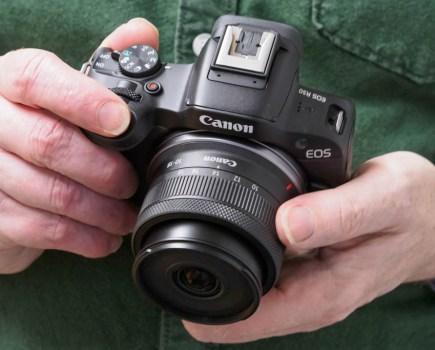Laws affecting photography in public places pose a threat to the livelihood of freelance photographers, a survey by the British Photographic Council has found.
Half of photographers surveyed said current laws affecting photography in public places are a threat to their businesses, with 82% claiming their income would be ‘adversely affected’ by similar, additional, legislation.
The survey said: ‘In recent years, both professional and amateur photographers have encountered significant difficulties from police officers and private officials when attempting to photographic legally in a public place.’
British Photographic Council chairman John Toner warned law-makers to ignore the survey findings ?at their peril?.
Nearly 1,700 UK photographers took part in the survey – 91% of them working on a freelance basis.
The survey – which also covered issues such as copyright and average earnings – found that only half of respondents had industry qualifications, with ?many entering the industry in middle age.?
It also portrayed amateur photography as a significant threat to the welfare of professionals, with 74.4% saying that competition from amateurs posed a threat to their business.
Many blamed clients who placed ‘price above quality’, adding that amateurs could charge lower prices due to lower overhead costs or ‘being subsidised by income from other occupations’.
One responded by claiming: ‘The mystique is gone with digital, the amateurs go untaxed, uninsured an unregulated.’
Another quote from the survey adds: ‘The industry as a whole is oversubscribed – too many good photographers chasing too little quality work, and undermined by amateurs or semi-pros working cheap and producing little more than snaps.’
Copyright retention boosts earnings ‘33%’
Only 5% considered formal qualifications ?essential? for working in the industry.
And nearly one in five professional photographers said photography was not their main source of income.
The survey also revealed that freelance photographers who retain copyright earn, on average, 33.2% more than those who ?routinely give their copyright to clients?.
Freelance photographers who keep copyright reported an average profit of £19,272, compared to £14,471 for those who gave it away.
Only one in ten of the photographers polled said they relinquished copyright to the client who had commissioned them for the shoot.
John Toner added: ?Copyright is not only the cornerstone of the creative industries, it is the foundation of creativity. Without it, creators would find it impossible to survive.?
Though 60% of photographers recalled instances where their copyright had been infringed in the past three years, only 30% of them took legal action.
Male dominated industry
Fewer than one in five of those surveyed were female, highlighting a ?predominantly male industry?, said the council.
The survey found that freelance photographers earn 83% less than employed ?staff photographers?. The average salary for a staff photographer was £34,535, compared to £18,821 for a freelance.
Toner added: ?Photography is important to the cultural life of our citizens, and legislators would ignore these finding at their peril.?
The British Photographic Council is an umbrella body that aims to protect, develop and promote the rights of photographic image makers.
Member organisations include the Bureau of Freelance Photographers and the Royal Photographic Society.
The survey of 1,698 photographers working in the UK market was conducted, online, between 24 May and 13 June 2010.
The full survey results can be downloaded HERE
RELATED ARTICLES
Photographers flashmob Scotland Yard on Fourth July 2010
Photographers can sue in wake of European ruling, says lawyer
European court rejects UK Government appeal
Police officers prevented picture-taking
AP’s lens cloth outlining the rules on photography in public places
Police chiefs: Everyone has right to take photos
Police ‘reasonably suspected’ photographer was terrorist
MET GUIDELINES reveal police risk breaking law







